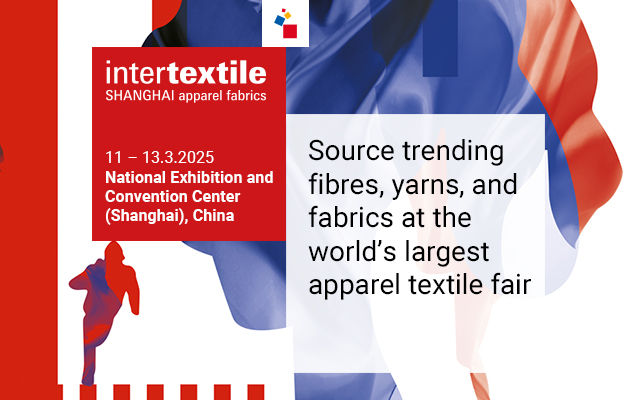The social and environmental impacts of the fashion industry are growing - brands need to contend with not only the sheer volume of demand, but there is an increased pressure to ensure they are driving down their prices, delivering in superfast time, and that they're going about it the 'right' way.
Ultimately the supply chain is the key to success for brands, so getting it right strategically, and ethically is more important now than ever.
Whether it be a new brand piecing together an ethical supply chain from scratch, or a corporate giant adopting a new strategy and reviewing the current ethical agenda, early indicators as to whether a prospective supplier's practices and processes reflect the brand's values are indicated if the supplier already implements an ethical auditing process and whether they have any links with any other well-known and reputable retailers.
Benefits to the apparel/garment manufacturers
There is now a genuine demand for ethically produced products - with more and more ethical brands popping up, both on the high street, and within the luxury arena 'ethical' can no longer be a fluffy add on, our big brands are having to factor this into their strategy alongside the commercial factors.
By embedding an ethical strategy, and adopting ethical and social sourcing practices, brands can begin to feel confident that their sourcing processes are not contributing to labour exploitation but enhancing supplier relationships and avoiding reputational risk.
More than being assured that their supply chain conscience is clear; sourcing ethically offers brands a strong USP. As consumer awareness of how products get to store shelves continues to grow, we're looking to make the right choice when making purchasing decisions people want to shop and not have to feel guilty about how their product was produced, offering them something that they can be assured is ethical only enhances a consumers retailer experience. This paired with good quality, and a product the consumer loves, will promote loyalty to the brand.
Standards for ethical sourcing
During the past 15 years, government, NGO's and trade unions have sought to facilitate change within supply chains, encouraging compliance with international standards with the collaborative aim of improving working conditions across the globe. However, even with this committed effort we live in a world where 200 million children are used for labor, in a time when 21 million people are trapped in modern slavery, not to mention the 3 billion workers surviving on less than 1.50 per day - many in conditions which are putting their safety, health, and even their lives at risk.
In a time of tragedy and scandal, we need to ask whether the traditional audit and compliance process is always fit for purpose.
Many existing audits and assessments can create an environment of fear, with the validity of the data questionable at best. Audit and compliance measures are not wrong, but we're failing to identify the root cause of fundamental issues within our supply chains.
A long-term commitment is required to achieve transparency throughout our global supply chains, allowing for a vital move from compliance, towards more engaged suppliers, and their workers.
Responsible Trade Worldwide has developed a tool which offers unique insight into global supply chains by capturing a top-down, and bottom-up view of an organisation via multi-lingual worker assessments, and metrics linked to employment practices and working conditions.
By engaging workers we increase their awareness and perception of the workplace, enabling them to feel comfortable in confidentially and anonymously sharing their thoughts, feelings and views about their employer, and the surroundings in which they work.
By comparing and
contrasting data captured through the worker with established business
practices and metrics sourced through management, a 360 degree view of an
organisation is formed, creating tangible figures and costs. This data will highlight
areas of people and financial risk, alongside areas of excellence, producing a
compelling business case for change.
Consumer awareness and green washing
Green is the new black, particularly in the fashion
industry. Within an overcrowded market, brands are trying to attract consumers
attention with what all too often is a 'perception' of how environmentally, and
socially sustainable they are unfortunately with very little substance to
back it up this is making it increasingly difficult for consumers to identify
those that are genuinely making strides towards having more ethical supply
chains, from those happy to distract from the reality with fabricated image of
what it should be.
Brands are conscious that consumer awareness of how goods are produced, particularly in the fashion industry has been on the rise since the early 90's. We have seen a steady increase in everyday shoppers acting with their conscience, as well as their wallets, making a move towards more responsible and informed purchasing decisions.
Today, with a supply chain scandal of some kind never far from the news headlines, and incidents such as the Rana Plaza tragedy fresh in our minds, there is a renewed demand from corporate giants and the consumer, to gain an understanding of where the products placed on shelves and put in our baskets, are coming from. Factors also being called into question are the conditions in which products have been produced, and the journey they've made.
The world is waking up, and brands need to be honest and open about their sourcing practices green washing won't 'wash' for long. Ignorance is no longer bliss for the retailer, nor the consumer, it is only through getting a grip on their supply chains, and creating greater transparency for themselves, that retailers can confidently filter the details of their socially, and environmentally sound practices through to their consumers.
Rebecca Taylor is the Head of Research at Responsible Trade Worldwide.








Comments